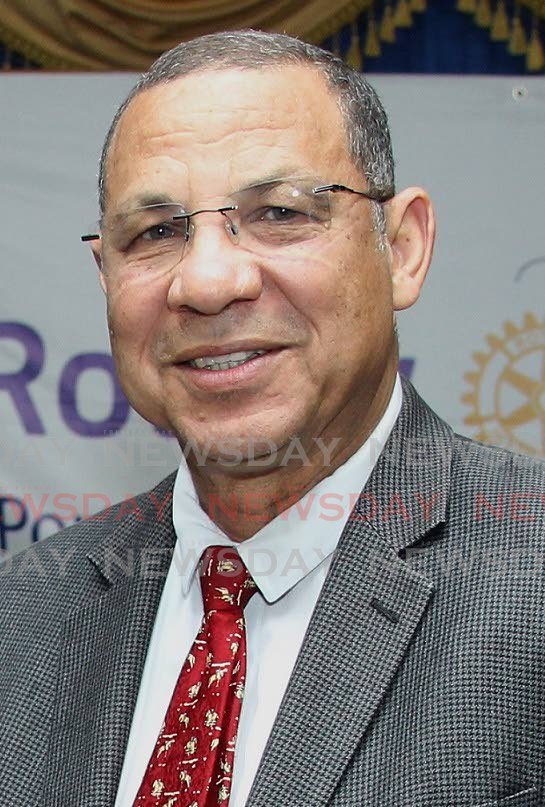Mariano Browne: Refinery hard to restart

FORMER trade minister Mariano Browne has said many obstacles exist to a restart of the Pointe-a-Pierre refinery.
He was speaking to a virtual meeting of the Port of Spain West Rotary Club on Wednesday.
Finance Minister Colm Imbert, in the budget, gave the OWTU-owned Patriotic Energies and Technologies Ltd a deadline of October 31 to reach an agreement to buy the facility. Failing this, Imbert warned, “The process will be brought to an end and Government will consider other options for the sale of the refinery.”
Browne said the refinery had lost its engineers, who had not gone to nearby destinations such as the Caribbean or North American, but to the Middle East and Far East in a big brain drain.
In the question session later, he was asked about the refinery’s possible reopening.
“I don’t think it will happen,” Browne said.
He said to be successful, the refinery must be efficient by refining a certain volume of crude oil, some 160,000 barrels per day (bpd), later telling Newsday its capacity in its heyday was 400,000 bpd.
“We have been out of the market two years. All the countries that used to be here are now being serviced by someone else.”
TT's domestic market of 25,000 bpd must be supplemented by exports of 115,000-135,000 bpd for the refinery to be viable, he said. "You cannot operate at 50 per cent of capacity, but 90 per cent."
Browne also declared that whoever owns the refinery must also own the Paria Fuel Company, which extracts crude oil in TT, but warned this would be seen as creating a monopoly.
He later told Newsday the refinery would need a full walk-through before it could be restarted, likening it to a car that had been down for two years. Saying "there is mothballing and there is mothballing," he told Newsday the refinery's prospects now largely depend on the state in which it had been left.
Browne told viewers the Government’s expansionary stimulus – by running a budget deficit, Heritage and Stabilisation Fund (HSF) withdrawals and borrowing – have slowed TT’s economic decline, but was insufficient to create a turnaround. Economic growth in TT will depend on factors such as individuals’ skill sets, the use of technology, the workforce’s aptitude, labour productivity, ease of doing business and population growth, he said.
Browne lamented that on a list of 190 countries, TT had fallen in its ease of paying taxes from position 160 to 166.
Otherwise, he showed graphs based on the International Monetary Fund’s (IMF’s) projections for the TT economy for 2022-2025, suggesting TT will return to its 2015 level of income only by 2025.
He was quite worried about the foreign exchange reserves, saying debts must be repaid and urging TT to start to export more goods and services to earn foreign exchange. Browne warned that the HSF is finite and sadly is being used merely for stabilisation or consumption, but is not being invested for new production. The HSF is vulnerable, just like the global stocks and bonds it has invested in, he warned.
He reckoned TT’s foreign exchange reserves are now at just 50 per cent of their level in 2014. While now quoted at US$7.3 billion, he estimated it was really at US$5 billion, when adjusted for the repayment of outstanding loans.
Saying the debt-to-GDP ratio was now at 80 per cent, up from 60 per cent five years ago, he said a significant 21 per cent of this debt is now owed in US dollars.
“Construction will help sustain the economy for a period until your foreign exchange runs out. So what are we doing to earn more foreign exchange?” he mulled.


Comments
"Mariano Browne: Refinery hard to restart"